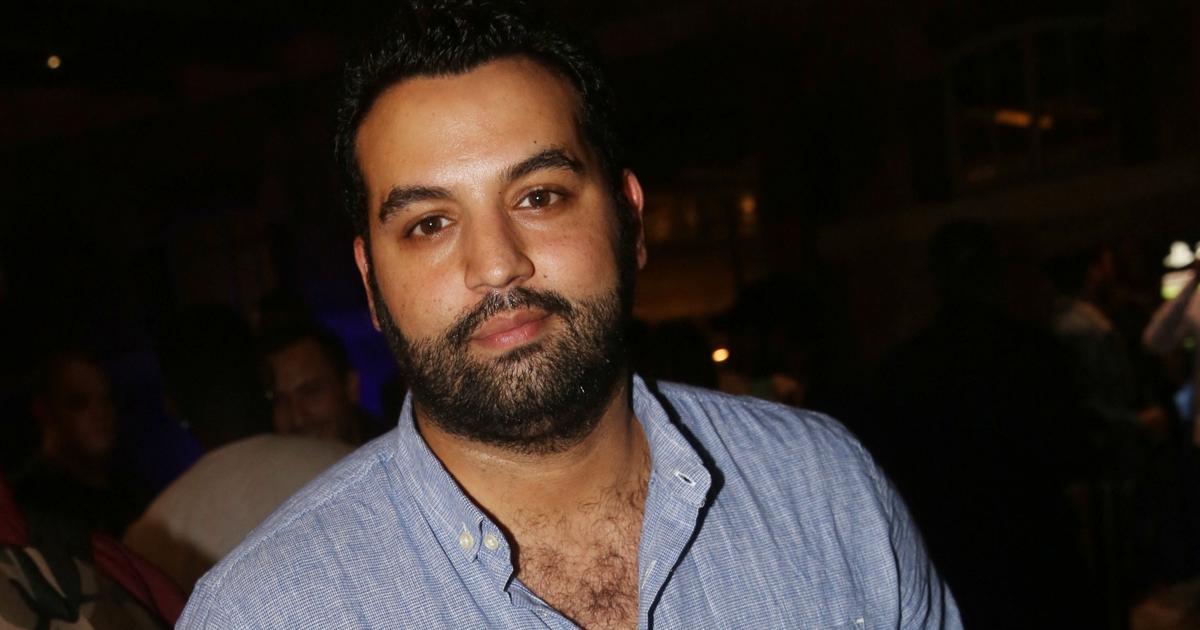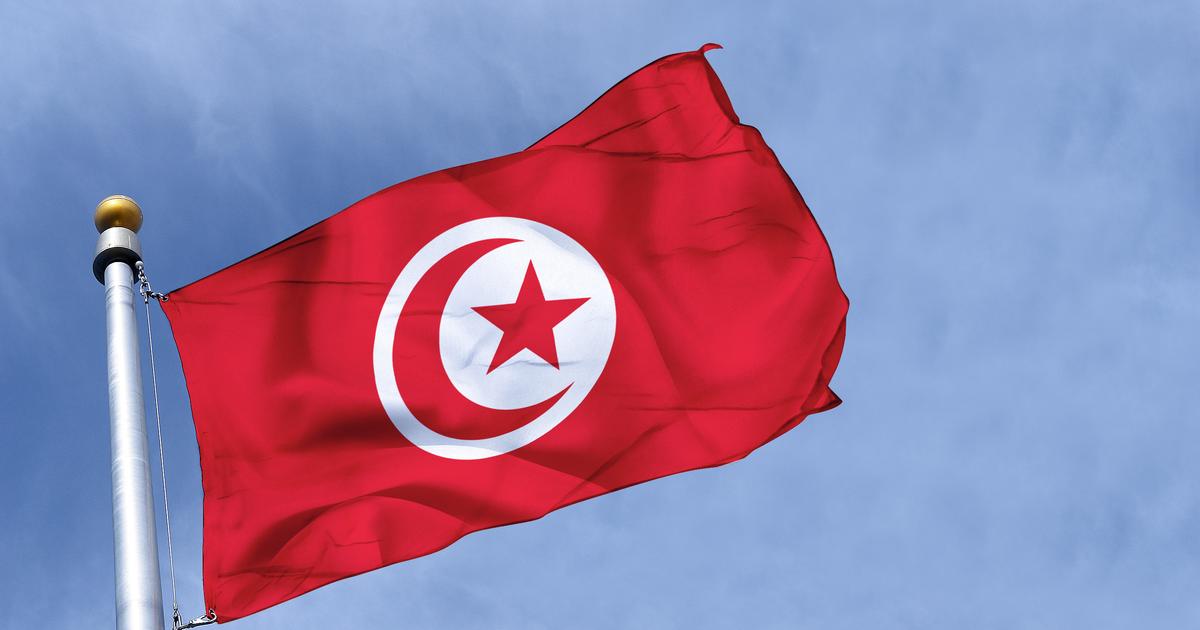news
Opinions and interpretations
On the way to normalization, the Muslim Brotherhood is stopped
The chain of rulings of the religious establishment in Saudi Arabia, the United Arab Emirates and Egypt against the movement known for its antisemitic views and opposition to a peace agreement with Israel, testifies to the regional change that is taking place before our eyes.
Tags
Saudi Arabia
United Arab Emirates
Bahrain
Egypt
The muslim brothers
Sudan
Eli Fuda and Limor Lavie
Wednesday, December 30, 2020, 11:30 p.m.
Share on Facebook
Share on WhatsApp
Share on general
Share on general
Share on Twitter
Share on Email
0 comments
Leeds United players celebrate
Report in Syria: Israel attacks targets in Hamat district in the center ...
Celebrations in Argentina after Congress approves the law allowing ...
Drivers stuck in UK due to border closure after discovery ...
The 23rd Knesset was dissolved, the elections on March 23, December 23, 2020
After entering the third closure: Business owners return to the island ...
Ganz: I pay a very heavy political price, but think only ...
Demonstrators attack detectives in Jerusalem, during demonstrations on ...
The Israeli-American spy Jonathan Pollard and his wife Esther ...
4 years in prison for a journalist who reported the outbreak of the corona ...
Rat on the formation of a party led by him: refuses to get used to the head ...
Business owners fear additional locksmith following crossing threshold ...
Photo: Reuters, Editing: Yair Daniel
The signing of peace agreements between Israel and Arab countries raises controversy in the Arab world over whether they are permissible under Islam.
A senior halakhic judge in the United Arab Emirates, for example, gave kosher status to the Abrahamic Agreements when he ruled that sharia beautified the ruler's power to conclude international contracts as he saw fit.
Another religious figure recruited a ruling (Fatwa) by the Mufti of former Saudi Arabia, Sheikh Abd al-Aziz bin Buzz, from the 1990s, who allowed reconciliation with the Jews if it was in the interests of the Muslims, in the light of the Oslo Accords.
Conflicting rulings have been issued by the Libyan religious establishment and the Palestine Religious Association in Gaza.
These present the agreements of Abraham as a betrayal of the nation and its saints, a free service to the enemy and a violation of the laws of Islam.
In Sudan, which has also announced the establishment of diplomatic relations with Israel, conflicting rulings have been issued by two competing religious bodies, one allowing and the other banning, and in Oman, which supports normalization, the Mufti recently ruled against it.
More on Walla!
NEWS
The seeds of the "Arab Spring" 2 have already been planted.
The question is what will Putin and Erdogan do
To the full article
More on Walla!
NEWS
Hezbollah fears: US and Israel may act before Biden enters
On the verge of an agreement: Saudi Arabia and Qatar are close to ending a 3-year break in the Gulf
Get up yesterday morning: Israel and the Biden administration on their way to a renewed confrontation on the Iranian issue
What should you check before buying home insurance?
Demonstrations by Muslim Brotherhood supporters in Cairo in 2014 (Photo: AP)
A series of Saudi statements indicate a change in attitude toward Israel
In Saudi Arabia, it has not yet been clarified whether it will join the agreements with Israel, the clerics did not express praise for the normalization or condemn it, but issued a series of other statements indicating a change in attitude toward Israel.
Prominent among them is the Saudi Mufti, who three years ago banned the attack on Israelis on the Temple Mount, and stated that demonstrations in support of Palestinians taking place in the Arab world are not beneficial, and that Hamas is a terrorist organization.
The omission of antisemitic and anti-Israel expressions from curricula in Saudi Arabia in the past year is another sign of change in relation to Israel.
This trend has been joined in recent weeks by the Imam of the Holy Complex in Mecca, who noted in a Friday sermon the good attitude of the Prophet Muhammad toward his Jewish neighbor.
These may indicate the preparation of the land for the establishment of relations with Israel, or at least for the receipt of agreements that are being drawn up between it and other countries in the region.
The Imam of the Holy Complex in Mecca has joined the change in relation to Israel.
Praying in Mecca (Photo: AP)
Another possible sign of rapprochement with Israel is the ruling of the Council of Saudi Religious Scholars, which states that the Muslim Brotherhood movement, known for its anti-Semitic views and opposition to the peace agreement with Israel, is a terrorist organization.
The brothers came to power in Egypt in 2012 in democratic elections after the fall of Mubarak, and were ousted from it in a military coup only a year later.
Since then, they have suffered unprecedented repression under President al-Sisi, even though the mainstream of the movement advocates non-violence.
The political split between the brothers' supporters and their opponents went beyond Egypt's borders and created regional polarization.
On one side stands the support camp, which includes Qatar and Turkey.
Saudi Arabia is leading the counter-camp, which includes Egypt, the Emirates and Bahrain - all four of whom declared the Muslim Brotherhood a terrorist organization several years ago.
Therefore, the backing given by the Saudi religious establishment, and the statement I made after it, to this declaration right now raises the speculation that this is a pro-Israel move.
The Saudis fear that Biden will resurrect the brothers
But the choice of this timing is not only related to the wave of normalization and the fact that Saudi Crown Prince Ben-Salman wanted a moderate image.
The main motive is the attempt to prevent a resurgence of the Muslim Brotherhood in light of the change of government in the United States.
The Saudis fear that incoming President Joe Biden may resurrect the brothers.
It is even possible that the declaration of the Saudi and emirate religious establishment was intended to encourage the outgoing president to declare himself the Muslim Brotherhood as a foreign terrorist organization, before handing over the keys to the White House in January 2021, a move he has been promoting since al-Sisi's visit to Washington in 2019.
Not accidental timing.
The scene of the stabbing attack in Nice, in October (Photo: Reuters)
However, various government officials oppose the move, saying it would undermine US relations with countries where the Muslim Brotherhood is a legitimate partner in government, such as Tunisia, and increase Islamophobia in the United States.
Such a declaration would lead to the elimination of all the activities of the brothers in America, and would encourage similar declarations in other countries, chiefly the countries of the European Union.
More on Walla!
NEWS
A decade later, the Arab Spring generation opens its heart
To the full article
Assembly of Egyptian clerics from al-Azhar Mossad against Muslim Brotherhood (Photo: AP)
The choice of the current timing also stems from the desire to take advantage of the momentum of the arrests and investigations that have taken place in recent weeks in France and Austria against political Islamists, led by the Muslim Brotherhood, since the recent terrorist attacks in Vienna and Nice.
In this context, there have also been a number of terrorist attacks against targets related to France in Saudi Arabia recently.
During his visit to Paris in mid-December, al-Sisi also spoke about the unity of fate between Egypt and France in the Muslim Brotherhood's fight against terrorism.
President Emanuel Macron, for his part, identified with the anti-Islamist sentiment and gave al-Sisi a sign of honor.
While the European Parliament called on the EU member states to re-examine their relations with Egypt due to the severe deterioration in the attitude of the human rights authorities, Macron completely ignored this.
Pressure against the Muslim Brotherhood.
Egyptian President al-Sisi with Saudi King Salman Riyadh (Photo: AP)
Under pressure from al-Sisi, Ben-Salman and Ben-Zayed, last week al-Azhar, the top ruling body in Egypt and the Sunni world in general, also joined a campaign against the Muslim Brotherhood.
After Egypt's Minister of Endowments and Mufti had already expressed support for the Saudi halakhic ruling, al-Azhar preceded a halakhic ban on joining the Muslim Brotherhood and other extremist movements.
This fatwa is the first time al-Azhar has delegitimized the Muslim Brotherhood, hence its importance.
Until now, al-Azhar's ruling body, which al-Sisi imposed at the beginning of his tenure to renew religious discourse by denouncing Islamic extremism and encouraging tolerance and moderation, has stubbornly refrained from labeling the brothers as a terrorist organization, just as it has refrained from classifying ISIS.
The religious institution delegitimizes the brothers.
Prayers at the Al-Azhar Mosque in Cairo (Photo: AP)
"Yes to normalization with Israel, no reconciliation with the Muslim Brotherhood"
Although al-Azhar sided with al-Sisi and backed the military coup against the brothers, the gap between them is widening, and al-Sisi is trying to cut off al-Azhar's wings and strengthen other religious institutions on his face.
The fatwa is echoing, therefore, because it is also the first time that al-Azhar has succumbed to al-Sisi's pressure to blacken the faces of the brothers and fundamentalist movements in general.
However, al-Azhar did not go all the way and did not declare the Muslim Brotherhood a terrorist organization as they did in Saudi Arabia and the Emirates - indicating that the Mossad was not complete with the decision, which may have been forced on it.
In any case, it seems that the chain of rulings of the religious establishment in Saudi Arabia, the United Arab Emirates and Egypt against the Muslim Brotherhood stems not from the love of Israel, but from the hatred of the Muslim Brotherhood and the desire of the leaders of these countries to nail the movement.
Either way, prominent arbitrators in the Sunni Muslim world have stated: Yes to normalizing relations with Israel, no to reconciliation with the Muslim Brotherhood.
Prof. Eli Fuda teaches in the Department of Islamic and Middle Eastern Studies at the Hebrew University of Jerusalem and is a member of the Board of Directors of Mitvim. Dr. Limor Lavie teaches in the Department of Arabic at Bar Ilan University and the Desk Society for the Study of Social Networks in the Arab World
Share on Facebook
Share on WhatsApp
Share on general
Share on general
Share on Twitter
Share on Email
0 comments









